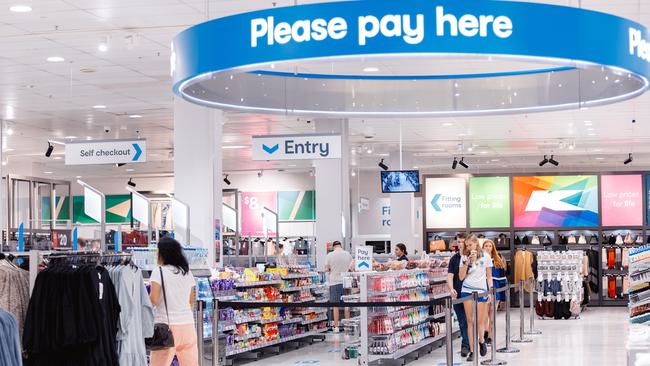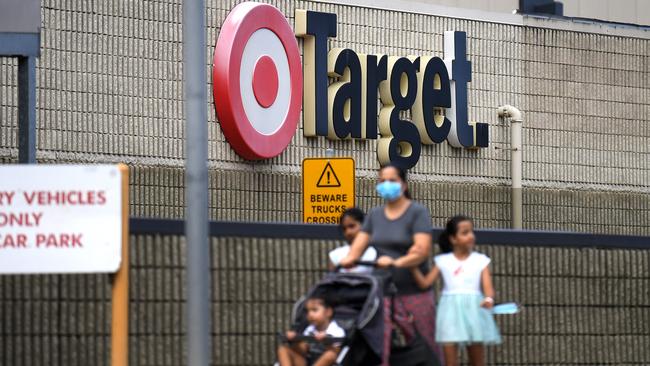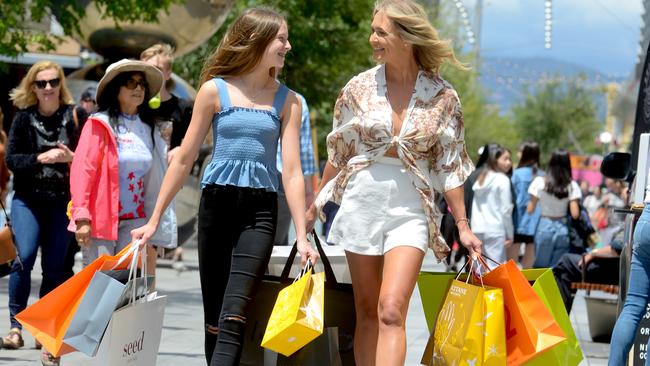Shopping frenzy wanes for Bunnings, Target, Kmart, economist says retail’s ‘easy wins’ coming to an end
The pandemic-driven shopping mania continues to calm down, according to the retail giant behind Bunnings and Kmart.
Sales continue to pull back for Wesfarmers-owned retail giants, including cash cow Bunnings, as the Covid-19 shopping frenzy wanes and consumption returns to normal.
The diversified conglomerate has been a huge beneficiary of Australians being housebound, unable to travel and left with little to do but finally undertake those home-sprucing projects they’d been putting off for years.
But in a strategy day briefing on Thursday, the group said its retail businesses had begun to “cycle the impacts of the pandemic in the prior year from mid-March, leading to significant volatility in monthly sales growth results”.
Looking at the performance of its retail chains over two years, all had continually enjoyed strong sales growth, with customer demand remaining resilient.
“But year-on-year growth has generally moderated and been negative in some months for some businesses due to elevated activity in the prior year,” Wesfarmers said.

“Online growth has moderated as customer traffic to stores has increased, and online penetration has reduced but remains above pre-Covid levels.”
The group is still in the process of closing or transforming its least viable Target stores, reporting it had converted 81 Target stores to Kmart and K Hub stores to date, with initial trading results above expectations.
Wesfarmers said the cost of the Target closures and transformations would cost up to $70 million this financial year, down from its previous estimate of up to $110 million.
The plan was to “continue to drive the growth of Kmart” and “embed and stabilise the Target operating model while accelerating online and continuing to differentiate the product offer”, suggesting Wesfarmers – and no doubt shoppers – saw the two discount department store chains as being too similar.
On Bunnings, Wesfarmers said “housing churn” – referring to Australia’s overheated residential property market – was a key driver of current consumer behaviour and it was seeking to offer more “on-trend products”, continuing its shift to selling a room concept or particular project.

Bunnings is also investing heavily to attract more business from tradies, including the purchase of Adelaide Tools and Beaumont Tiles, and using online and mobile technology to make their purchases easier.
The strategy briefing also included a video showing how Officeworks was replacing conveyors with robots in its warehouses.
“It’s safer and smarter to use, and it's more advanced,” Officeworks supply chain general manager Brett Kelly said.
Also on Thursday, Australian Bureau of Statistics data showed retail trade had risen 1.1 per cent month-on-month and a whopping 25 per cent over the 12 months from April last year.
BIS Oxford Economics chief Australia economist Sarah Hunter described the annual growth as “spectacular”.

NSW and Victoria led the way, with other regions generally reporting subdued growth rates, confirming “the easy wins from reopening are now coming to an end”, Dr Hunter said.
“The impact of the Queensland and Western Australian lockdowns was also clear, with both states underperforming the national average.”
She also noted online’s share of total spending had held steady at just more than 9 per cent since December.
“And somewhat surprisingly spending in cafes and restaurants increased by a modest 0.6 per cent on the month, well behind a 4.4 per cent increase in takeaways,” Dr Hunter said.
“Although some of this is a result of the lockdowns, it highlights that the recovery in household spending is likely to become patchier as we move through the rest of the year, notwithstanding the general trend in spending back to services.”


